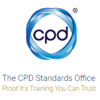
Ultimate guide to: Keeping safe online
Remaining safe and secure when using the internet is essential but challenging. Read our guide to learn what you can do to protect yourself and remain safe.
16 March 2022
As of January 2022 there were 4.95 billion active internet users – that’s around 62.5% of the global population. This provides online cyber criminals with a massive opportunity to tempt unsuspecting users into giving away their personal data, or leaving themselves open to malicious attacks, by not following essential internet security checks.¹
In this blog we’ll share what internet security threats there are when using the internet, why internet security is important and what you can do to keep your device and data safe and secure.

What is internet security?
Internet security refers to a range of security best practices and processes for protecting you and your device when using the internet. The volume of data we access and exchange online is huge, such as; entering personal details on online forms, shopping online and searching for the answer to a question you just can’t answer. It’s important that all sensitive and personal information is kept safe and secure at all times so it doesn’t fall into the wrong hands, that’s the function of internet security.
There are three main components to maintaining effective internet security:
- People: have a good knowledge and awareness of what you can do personally to keep safe
- Processes: follow the recommended processes when using your devices to access and use the internet
- Technology: install the required software to protect you from external attacks, and remember to keep your devices updated to ensure you’ve got the latest security patches and protocols.
Internet security threats
Cybercrime is any criminal act conducted through computers, networks and the internet. Organised cyber criminals have been quick to take advantage of the opportunities presented by the Internet, particularly with the growth of shopping and banking online. Some of the most common internet security threats include:
- Phishing emails: you receive an email asking you to click on a link, open an attachment or make a payment, the main aim with this type of attack is to get you to share some of your personal information
- Malware: short for malicious software, created by cyber criminals to disrupt, damage or gain access to your computer systems, often sent through phishing emails
- Ransomware: a type of malware that allows cyber criminals to lock your computer or lock particular files on your computer. The cyber criminals will then send you a message telling you that in order to gain access back, you need to pay them
- Spam: large volumes of unwanted junk mail sent to your inbox, in some cases these emails can contain malware designed to infect your computer by damaging systems and stealing important information
- Computer worms: a self-replicating type of malware designed to take up valuable resources on your computer, such as hard drive space. They can spread from computer to computer on a shared network and delete or modify files.
Ransomware attacks are a major concern for organisations and businesses, but the biggest internet security threats in general are phishing emails and online scams.

Why internet safety is important
Without internet security measures in place, you leave yourself open to a number of different risks:
- Private and confidential communications, such as emails, can potentially be intercepted and viewed
- Online identities can be stolen and used for criminal purposes. The information stolen is often used for financial gain by being sold online to the highest bidder, used to make purchases or to take out credit cards or other finance in your name
- Computers can be compromised and valuable data destroyed
- Your personal accounts might be accessed, such as bank accounts, where you find that your life savings have been transferred away
Any one of these could have a significant impact on everyday life, personally and/or financially. That’s why it’s so important to have effective internet security.
Safety tips when using the internet
There’s a lot we can do to stay safe when using the internet, and it doesn’t have to cost a lot of money. By taking sensible precautions and following sensible guidance and best practices, you can stay safe and secure. Let’s explore some practical tips to help you do this:
1. Always use strong passwords
We use passwords to access our devices, accounts and apps every day, accessing personal and financial information that needs to be kept safe and secure. There are a number of different things to consider when creating a strong password:
- Length – the longer your password the harder it’ll be to guess
- Random words – try using random words that are easy for you to remember but hard for others to guess, avoid using words that people would associate with you, like the name of your pet
- Special characters – adding special characters to a password adds a further level of complexity that makes them more secure
- Case sensitive – try mixing up lower and upper case letters in your password
It’s advisable to have a different password for each different account you’re accessing, but this can sometimes be tricky depending on how many you have, if you find yourself in this position a password manager could help. A password manager is an application (app) on your smart phone, tablet or computer that stores your passwords securely - so you don’t need to remember them all. You’ll just have to remember one password, the one to access your password manager, they can also suggest new passwords when it comes to changing them.

2. Setup two factor authentication (2FA)
Two-factor authentication (sometimes referred to as 2FA) provides your accounts with an extra layer of security and can stop cyber criminals accessing your account – even if they have your password. You’ll be asked to verify a second piece of information after entering your password, this could be digits from a code sent via a text message (SMS), a notification in your app or providing fingerprint or facial recognition.
This type of security means that your account can’t be accessed directly from just entering your password, adding another barrier between your personal details and cyber criminals.
3. Keep all personal information secure
Never share any personal or financial information with websites that aren’t secure. Check the address bar for the website you’re using and see if there is a locked padlock icon, this means the website is secured with a digital certificate. Only share personal information online if you’re sure the website is genuine. Check this module out to find out how.
4. Ensure all devices are secure
All of the devices (smartphones, laptops, tablets, computers) you use to access the internet will have security features built in already, but it’s important that you make sure they’re set up and activated. These include PIN entry, fingerprint or facial recognition and passwords to access your device. This forms the first barrier to anyone other than yourself trying to access your device.
5. Keep your software up to date
The software installed on our devices is constantly being developed and upgraded to work more efficiently, provide a better user experience and improved security features to combat the latest techniques used by illegal hackers. Software weaknesses can be exploited by illegal hackers so it’s important to keep all software, including any internet security software you have installed on your device, up to date with the latest updates (also known as patches).

6. Ensure privacy settings are on
The web browsers you use to access the internet have privacy settings that you can change to keep your browsing activity private, this can also be said about many of the websites you may visit, e.g. social media sites.
7. Take care with downloads
There’s an incredible amount of content available to view and download on the internet but it’s important to take care over what you download, and where you download it from. It’s advisable to only download content from reputable and trusted websites to reduce the risk of you downloading content embedded with malicious software.
Make sure anything you download is scanned by an up to date anti-malware scanner because don’t forget, the primary objective of some cybercriminals is to get you to download and install malware so they can cause harm to your device or try and steal your personal information.
8. Back up your personal data
It’s a good idea to back up your personal and valuable data you have stored on your devices to an external source such as an external hard drive or cloud storage service. This creates a copy that can be accessed easily if you become the victim of a malicious attack.
Hopefully you’ll see that there’s lots of things you can do to keep safe when accessing and using the internet, by taking precautions and following sensible guidance and best practices, you can keep your devices and personal information secure.
Source: Digital 2022 Global Overview Report retrieved from: https://datareportal.com/reports/digital-2022-global-overview-report
If you want to learn more about keeping safe online, why not click on the link below and sign up to Digital Wings

